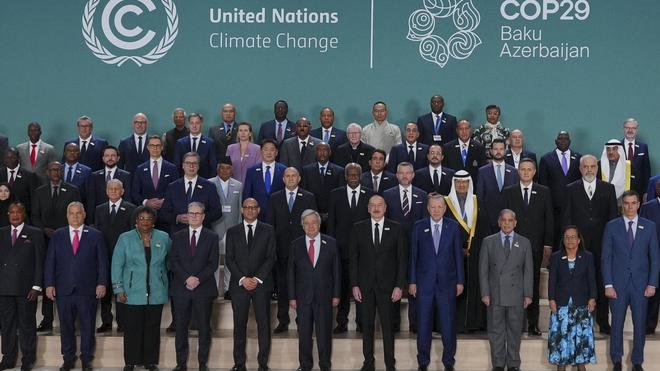Indonesia Calls for Global Solidarity and Climate Action at COP29
BAKU, RAKYAR NEWS – At the 29th United Nations Climate Change Conference (COP29) in Baku, Azerbaijan, Indonesia’s Parliament urged for a collective and equitable approach to addressing the challenges posed by climate change.
The call was made during the Parliamentary Meeting organized by the Inter-Parliamentary Union (IPU), highlighting the urgency of action in tackling the global climate crisis.
Ravindra Airlangga, Deputy Chair of the Inter-Parliamentary Cooperation Body (BKSAP) of Indonesia’s House of Representatives (DPR RI), emphasized that innovative strategies are crucial for accelerating the transition to sustainability.
He stressed that developed nations must shoulder a proportional responsibility in addressing the climate crisis, especially given the disproportionate impact on developing countries. “Shared responsibility must be accompanied by proportional contributions,” he stated.
Airlangga’s remarks were delivered during the session titled “Unpacking the Global Climate Finance Architecture: Mobilizing Resources and Streamlining Access to Climate Change.” This session focused on exploring ways to improve access to climate finance and resources for vulnerable countries, which often struggle to secure the necessary funding for climate adaptation and mitigation efforts.
He underscored the significant challenges faced by developing nations, which are the most vulnerable to the adverse effects of climate change. Despite contributing relatively little to global emissions, these countries bear the brunt of rising sea levels, extreme weather events, and other climate-related disasters. Airlangga noted that historical emissions from a small number of developed nations account for the majority of global CO2 levels.
“Seventy-nine percent of global CO2 emissions have historically come from a few developed countries, while it is the developing world that faces the most severe impacts of climate change,” Airlangga pointed out. He referenced projections from the Potsdam Institute for Climate Impact Research, which indicate that by 2050, the financial losses from climate change could reach nearly half of the global GDP.


Tinggalkan Balasan Batalkan balasan